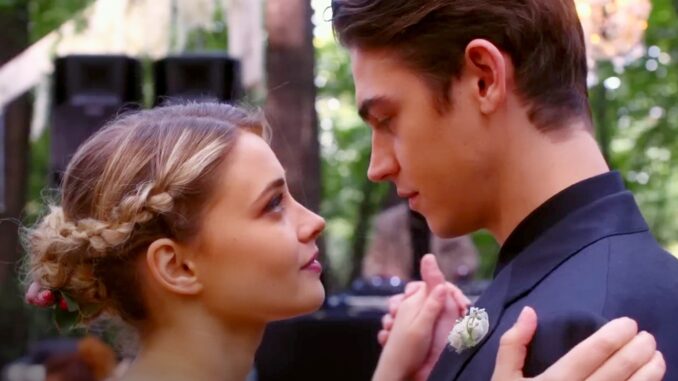
The Echoes of Closure: How "After Everything's" Final Chapter Fractured a Fandom
For years, the "After" series by Anna Todd was more than just a collection of books; it was a cultural phenomenon, a searing, messy, irresistible journey into the tumultuous love affair of Tessa Young and Hardin Scott. It cultivated a fanbase as passionate and fiercely loyal as it was vast, a collective that weathered every storm, every break-up, every reconciliation alongside its protagonists. They invested hours, tears, and an almost familial devotion. And then came After Everything, the final, conclusive chapter, poised to deliver the ultimate resolution. But what arrived was not a universally celebrated denouement, but a narrative earthquake, splitting the fandom into two distinct, often warring, camps: those who found a quiet, earned peace, and those who felt utterly, irrevocably betrayed.
From its Wattpad origins, "After" thrived on a specific brand of high-octane drama. Tessa and Hardin's love was a crucible, forged in fire, betrayal, and an undeniable, almost magnetic, attraction. Fans signed up for the rollercoaster – the toxicity, the grand gestures, the heart-wrenching lows, and the dizzying highs. They dissected every glance, every argument, every passionate encounter. By the time After Everything arrived, the anticipation was a tangible thing, a collective holding of breath. What would become of them? Would Hardin truly change? Would Tessa find her own strength? The years of emotional investment had created a towering expectation for an ending that would either provide a cathartic release or a soul-crushing, yet definitive, finality to their epic, often frustrating, saga.
For one faction of the fanbase, the final chapter of After Everything offered precisely what a mature, long-term relationship might realistically achieve: a quiet hum of satisfaction rather than an explosive bang. After endless cycles of chaos, the ending suggested a path towards growth, forgiveness, and a measured future. It implied that love, particularly one as turbulent as Tessa and Hardin’s, doesn't always culminate in a fairytale wedding and immediate, blissful perfection. Instead, it presented a future built on small steps, on Hardin’s continued efforts at self-improvement, and Tessa’s assertion of her own identity, albeit still intertwined with his. This camp saw the ending as a testament to the idea that love, while imperfect, can endure and evolve. They appreciated the subtly, the suggestion that these two incredibly flawed individuals could, against all odds, find a fragile but genuine peace, building a family not out of immediate passion, but out of an earned understanding and quiet devotion. For them, it was the realistic, adult conclusion to a series that, at its heart, explored the messy complexities of young love. It felt earned, a sigh of relief after a decade of holding their breath.
However, for a significant portion of the longtime fans, the ending felt like a deflated balloon after a grand parade, a narrative whimper where they expected a roaring crescendo. These readers had invested in the drama, the grandiosity, the pain that defined Tessa and Hardin. They craved a payoff commensurate with the years of emotional agony they had endured alongside the characters. The final chapter, with its jump in time and relatively understated resolution, felt anticlimactic, even sterile. Hardin’s transformation, after books of frustrating backsliding, felt unearned and too sudden, his growth conveniently occurring off-page. Tessa, who had often struggled to find her voice, seemed to settle for a domesticity that some perceived as a regression rather than a triumph of individuality. The very messiness that had defined their relationship was neatly tucked away, replaced by a picture of conventional happiness that felt alien to their raw, volatile story. For these fans, the ending was a betrayal of the characters' core identities and the very essence of the series. It was too neat, too conventional, and ultimately, a disappointing erasure of the chaotic love they had come to cherish, transforming their epic saga into something almost ordinary. They felt cheated out of the catharsis, the final, searing moment – whether it be a glorious reconciliation or a heartbreaking, definitive split – that their emotional investment had demanded.
The polarization of After Everything's final chapter is a microcosm of the complex relationship between authorial intent and fan expectation. A creator’s vision for closure may not align with the passionate, often deeply personal, narratives constructed by their readers over years of engagement. For "After" fans, the ending wasn't just a plot point; it was the final word on characters who had become intimately entwined with their own emotional landscapes. Whether seen as a mature evolution or a narrative cop-out, the conclusion of Tessa and Hardin's story became another tempest in their already stormy world, ensuring that even in its closure, the "After" series continued to ignite fervent debate, a testament to the enduring power of stories that capture and refuse to let go of their audience's hearts. The echoes of that final chapter, much like Tessa and Hardin’s love itself, continue to reverberate, a dissonant chord struck between expectation and reality.
